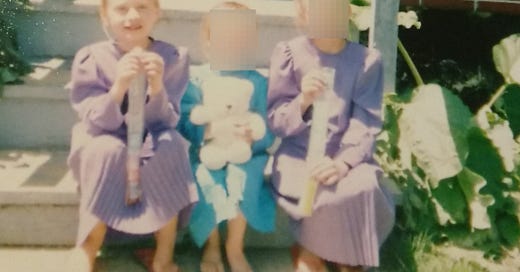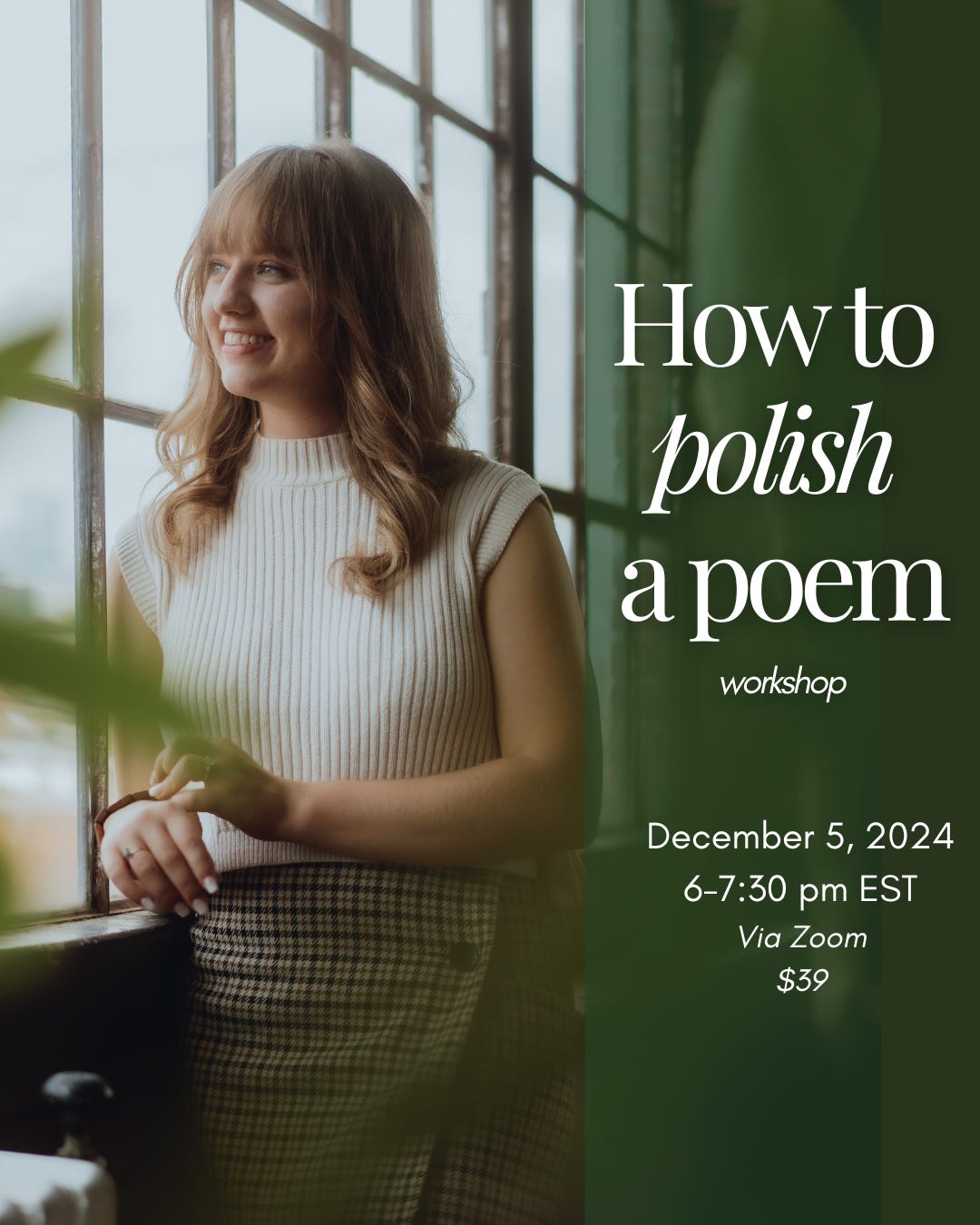In poetry, it’s okay to lie.
This is what I tell the writers in Gather, my poetry community. Okay, I word it a little more eloquently and with a touch more nuance than that, but at the heart of it, that’s what I’m saying. Twist the truth like a pipe cleaner. Shape your story like clay—mold it into a mug that feels good to hold.
November’s theme was “Memory”, and we discussed how, in times of soul emergencies, we can write the memories we need, even if they don’t exist. We can fabricate poems about a loving father, write about receiving the apology we always needed, or offer the one we never dared. We studied the art of simile and how it acts as a bridge between the truth and perception of the truth. For one sacred Sunday morning, we borrowed the truth.
At some point in life, our perception of 'truth' shifts. Usually, something spurs this on.
Mine began to waver during the summer of the public pool.
In the last few letters, I’ve told you the story of my family fleeing Mexico for a better life in Canada. Well, things weren’t exactly paradise once we arrived…
To afford feeding a family of six, we all had to pitch in. During the summers, we worked in a local farmer’s garlic fields. The entire process started with pulling the ripe garlic from the burgundy dirt, gathering it into large piles, and then cutting the root and the stem off, which were discarded.
During those summers, the pungent aroma of raw garlic clung to our clothes, our minivan, and even our hair. You couldn’t rid yourself of it if you tried. It marked you.
We were paid by the bushel—ten dollars for a 50lb crate that took me nearly four hours to fill. The first time I worked an entire summer in the fields, I was only eight years old.
Even though this particular summer was not my first one, it was the hardest. Each day, the sun burned my arms a deeper red. I had a line as sharp as a ruler where my glove ended and my forearm started.
My palms were covered in blisters, white as dead mosquitos. They never got the chance to heal in between work days. In the mornings, I would wake up, and as I opened my hands, the half-healed blisters would crack open again like eggshells.
Though this summer meant long, exhausting days, it was also the summer of my childhood I remember the most. My parents agreed to let us enjoy the public pool close to our house after work. Looking back, it was a small consolation prize for the pain, but to us, it was the nicest thing they had ever done.
After work, we showered in ice-cold water for no more than two minutes—our sunburns screaming—then piled into our minivan and drove ten minutes to the pool. The terribleness of the day washed away as we cannon-balled into the deep end, giggling like normal kids.
By September, with the garlic harvest finished, my hands had healed, and the sharp sting of the bitter sun was a distant memory. My mother took us to the “Free Backpack Program” in our town, which supplied low-income families with school supplies. I picked out a black and purple backpack and loads of fancy pencils. Everything returned to normal, except this summer, I was going to school with a juicy story in my back pocket. I couldn’t wait to tell my friends.
Emily and Pippa turned their perfect little noses up at my story, “Okay…and?”
They had both gone to overnight Bible camp, and Emily had her first kiss. Tilly had gotten her belly button pierced. Sasha came back with a real bra, not a training one. And I had a public swimming pool story.
I think this is where it started. The lying. Suddenly, Pedro—the boy with bacne I met in Mexico the year before—became my imaginary boyfriend. (I kept this lie alive until I met my first real boyfriend in high school. If we were in grade nine together, and you’re reading this, Pedro was icky. I never liked him. Sorry for lying.)
I lied about all the little things. Like how I wasn’t allowed to wear crop tops and shorts to school because I had a skin condition. Not because my mother would have whooped my ass if she saw me leave the house like that. I lied about Europe. I lied about smoking with my grandfather in Mexico. I lied about boys I never kissed and trips I never took. I think the last time I lied egregiously was on a date at age nineteen. I told a man I didn’t like that I had a distant relative related to Emily Dickinson.
That was my favourite lie.
Throughout the years, I saved face, for the most part, okay. Maybe I even came across as interesting and well-versed. But I suspect people sensed it. Energy like this smells a little funny. If you get close enough, you’ll know it’s there. Nobody ever called me out, and thankfully, I never truly embarrassed myself—though maybe I deserved to.
I don’t really know what “cured” me of this need to lie except maybe starting to live the life I lied about for many years.
At seventeen, I moved out and began wearing crop tops and short skirts unapologetically. In college, I began dating a man from France, and during the summer, he took me home to meet his family and we drank wine and smoked cigarettes in the French countryside. It was the first time I felt like the world was giving me something I could work with.
The Instagram story replies from my elementary school friends come pouring in. Heart-eye emojis and thumbs-up galore. For once, no one rolled their eyes. For once, my life was good enough.
I have compassion for my thirteen-year-old self, who desperately wanted to wear every kind of life except her own. To have a story to tell that someone would pay attention to.
Isn’t that what we all want? To bend a loyal ear.
It’s ironic. I’ve been writing seriously for five years now. In poetry or prose, I have the freedom to lie. To tell any story I want to. In fact, I so deeply believe in this freedom I share it with my writing community often.
After so many years dressing up my life, all I want now is to tell the truth. So, if you are reading this, thank you for giving a shit about my true public pool story. I really needed it.
Xo
Maria
P.S. If you like these personal letters, catch up on some of the previous ones:
It’s not that my father is a hero
My mother can’t tell you the name of her great-grandmother
It’s not that we fled Mexico, it’s that something was chasing us
👀Also—only a few spots left in my upcoming workshop!
On December 5th, I’m hosting a workshop “How to Polish a Poem”. You’ll bring a draft or two and come away with a polished poem. Grab one of the last few remaining tickets here!






Love this one
Perhaps sometimes lies are prophecies - are you not a distant relative of Emily Dickinson?